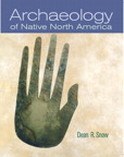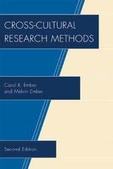Reading notes, North American Archaeology
Reading is essential for learning in this course. Without a sincere commitment to the textbooks, you will not learn as much about North American archaeology and research as you hoped and deserve.
To help you learn and remember what you read, please complete reading notes on each of the assigned chapters. The format is flexible but your notes should capture essential information you want to remember. Take time to select at least five things you read that you found valuable and summarize, in your own words, what you learned. Notes such as, "The author explained how the Americas were peopled" are inadequate unless you provide a few sentences explaining what you learned about the peopling of America. Likewise, "I learned about the population levels of North America" is not an adequate demonstration of the depth of your learning nor are only five sentences - one for each thing you found important. And, documenting relatively specific facts without larger significance for your learning is not worth you time (e.g., "The Ushki complex is comprised of small bifacial points, bifacial knives, and stone and ivory beads..."). At a minimum, focus on taking notes on ideas/information that will be valuable for you in this course. This effort will be as worthwhile as you are willing to make it.
Please do not rely on the Summary at the end of each chapter in Snow. Your notes are a record of what you find important, what you want to remember! I'm not looking for "right answers" in your notes; I'm looking for evidence that you read a chapter, identified the main points, and found some personal value in it. Write your notes in your own words rather than duplicating sentences from the text.
You may also concept map a chapter instead of developing reading notes.
Your notes should be close to 1 full page of single spaced text with spaces between the different and significant things (numbered 1 to 5, at least) you want to remember. Please upload your notes in Microsoft Word format or as a pdf in Blackboard before the day/time they are due.
Reading Notes for each chapter should be submitted separately. You will earn up to 1 point per chapter. For example, if Snow Chapters 1, 2, 3 are due on a particular day, upload 3 separate documents---each will be worth up to 1 point (1 point equals 1% of your course grade!).
Grading Rubric: your notes will receive full credit if they demonstrate a careful reading of the chapter, documentation of main and important concepts, a careful consideration and some reaction to what you are learning, and are at least 1 full page in length. Five sentences containing only facts copied directly from the book will receive little to no credit. Short bullet-pointed topics covered in the chapter without any explanation will also not receive full credit. In sum, superficial notes that do not document important chapter concepts and details will NOT receive full credit.
If you have trouble with Blackboard print the notes out and bring them to class or email them to me before the start of class. As an issue of fairness, I cannot accept late notes. I will also look for notes on each assigned reading in your OneNote information management system.
To help you learn and remember what you read, please complete reading notes on each of the assigned chapters. The format is flexible but your notes should capture essential information you want to remember. Take time to select at least five things you read that you found valuable and summarize, in your own words, what you learned. Notes such as, "The author explained how the Americas were peopled" are inadequate unless you provide a few sentences explaining what you learned about the peopling of America. Likewise, "I learned about the population levels of North America" is not an adequate demonstration of the depth of your learning nor are only five sentences - one for each thing you found important. And, documenting relatively specific facts without larger significance for your learning is not worth you time (e.g., "The Ushki complex is comprised of small bifacial points, bifacial knives, and stone and ivory beads..."). At a minimum, focus on taking notes on ideas/information that will be valuable for you in this course. This effort will be as worthwhile as you are willing to make it.
Please do not rely on the Summary at the end of each chapter in Snow. Your notes are a record of what you find important, what you want to remember! I'm not looking for "right answers" in your notes; I'm looking for evidence that you read a chapter, identified the main points, and found some personal value in it. Write your notes in your own words rather than duplicating sentences from the text.
You may also concept map a chapter instead of developing reading notes.
Your notes should be close to 1 full page of single spaced text with spaces between the different and significant things (numbered 1 to 5, at least) you want to remember. Please upload your notes in Microsoft Word format or as a pdf in Blackboard before the day/time they are due.
Reading Notes for each chapter should be submitted separately. You will earn up to 1 point per chapter. For example, if Snow Chapters 1, 2, 3 are due on a particular day, upload 3 separate documents---each will be worth up to 1 point (1 point equals 1% of your course grade!).
Grading Rubric: your notes will receive full credit if they demonstrate a careful reading of the chapter, documentation of main and important concepts, a careful consideration and some reaction to what you are learning, and are at least 1 full page in length. Five sentences containing only facts copied directly from the book will receive little to no credit. Short bullet-pointed topics covered in the chapter without any explanation will also not receive full credit. In sum, superficial notes that do not document important chapter concepts and details will NOT receive full credit.
If you have trouble with Blackboard print the notes out and bring them to class or email them to me before the start of class. As an issue of fairness, I cannot accept late notes. I will also look for notes on each assigned reading in your OneNote information management system.


